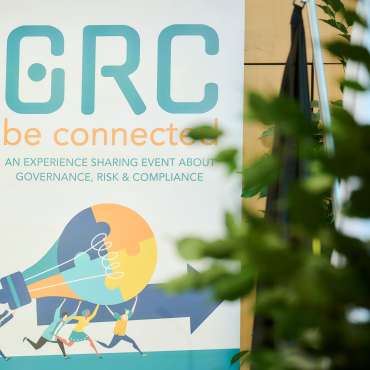The very strong growth in the cyber security sector over recent years has proven why women deserve, should claim, and ought to fill a position in this field. The panel spoke about the challenges women are facing, best practices for the inclusion of women in a male-dominated sector, the changes that need to be made in order for women to easily find their way in cyber security, and last but not least, the impact of women on the most recent evolutions in the cyber security sector.
Challenges in cyber
There are two main challenges that need to be tackled by the cyber security sector. Firstly, the sector must convince women that this is indeed a field for female professionals. Secondly, the sector must be made more diverse: in terms of age, origin, gender and education. These two challenges can be solved by explaining more clearly which profiles fit in a cyber security team, in order to attract the right people.
All of the speakers agreed that cyber security is much more than merely a technical field. It comprises managing projects, building awareness, communicating with others, etc. It therefore requires empathy, intelligence and a range of human skills. The more diverse a person’s background, the better they might fit into the cyber team. Branching out the pool of applicants is not enough, however. Modern organizations don’t interview for vacancies unless they have a pool of diverse candidates combined with a diverse interview panel. You cannot have one without the other, and for some companies, this is an issue.
Best practices for the inclusion of women
Best practices for including more women in the cyber security field, all the panel members agreed, include education, access to trainings, and visible role models. Nadia Aimé spoke from experience that women need female role models in order to envisage who they can and want to become. This inspiration will help convince women that it is never too late to change career course.
Today, many organizations offer opportunities for professionals to reskill. Digiskillsbelgium.be brings together all of the Belgian initiatives. However, an initiative should not only involve the personal investment of the individual themself in their free time; companies should also invest in free training, such as Cisco’s “skills for all”. The organizations represented by the panel members are already advancing valuable reskilling opportunities. Agoria, for example, created “S.He goes digital”, a Master’s programme taught at ULB, for people without a STEM educational background, who want to start or continue their career in the digital and IT fields. In addition, Solvay Brussels School of Economics & Management has some scholarships for attending classes in digital, IT and cyber.
Make the change
In order to create change for women in cyber, we need to drastically transform our educational system, by introducing children to cyber from a younger age. The educational goals for primary school children in Flanders and Wallonia should integrate digital training, teaching children at a young age what happens to data and what it all entails. This decision is in the hands of the education minister. In the meantime, Cisco, for example, provides interactive workshops for girls aged 10 to 15, to show them that the sector is fun and exciting – and is not only for men. On top of that, we need to reach out to parents, and convince them to include children in technical conversations or to sign them up for relevant summer camps or programmes.
The will to educate or reskill oneself is the first step, but women need support from within the cyber security community. That is why active cyber security actors – both male and female – should advocate for more women in cyber. Simply by starting the conversation and integrating them into your network, you can encourage women who are hesitant about the field.
Evolutions in cyber
Some of the recent evolutions in cyber show the positive impact of women in cyber security, and could also be leveraged to attract more women. We need to learn to use the fast (r)evolution in AI, for example, as a strength, not as a weakness or vulnerability; this can be positively impacted by a diverse team. The amount of data involved in threats and incidents is beyond human intelligence and capabilities. There is no doubt that all security solutions must have embedded machine learning and AI. A diverse team can prevent chatbots from taking on sexist or racist overtones.
Working from home as a result of the Covid period, has proven to be a great opportunity for attracting more women to reskill in cyber. For some, the flexibility of working to their own schedule delivers a better work-life-balance. For others, however, it could result in their work remaining unseen. That is why the hybrid model is the golden mean.







